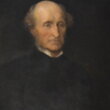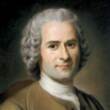John Stuart Mill: a biography
Description
More Details
Also in this Series
Published Reviews
Choice Review
To write a biography of a philosopher's life as well as his ideas requires a combination of gifts: historical knowledge, psychological insight, philosophical acumen, interpretive sense, and the ability to let the philosopher speak for himself. These gifts are on display in Capaldi's engaging and revealing biography of J.S. Mill. Capaldi (College of Business Administration, Loyola Univ.) sure-handedly situates Mill in both his social and intellectual milieu, and gives due weight to Mill's complicated relationship with his family, especially his distinguished father James Mill, and with England itself. Personally, Mill's deep love and appreciation for Harriet Taylor is portrayed sensitively and powerfully. Philosophically, Mill is often regarded, along with Jeremy Bentham, as a "classic utilitarian." But what Capaldi's biography shows convincingly is that Mill took at least as much, if not more, from Romanticism than he did from the utilitarianism of Bentham and his father. Mill's project, indeed, can be seen as a masterful attempt to synthesize the best in each, but, if Capaldi is correct, the synthesis tips in the direction of Romanticism, not utilitarianism. This fine biography will be of keen interest to a variety of readers. ^BSumming Up: Highly recommended. General readers; upper-level students through professionals/practitioners. H. Oberdiek Swarthmore College
Publisher's Weekly Review
While he is considered to be the greatest English intellectual of the 19th century, Mill (1806-1873) is often reduced to a set of parochial engagements with his "utilitarianism." In this authoritatively comprehensive analysis of Mill's lifelong explication of the "liberal culture" spawned by the Industrial Revolution, Loyola professor of business ethics Capaldi presents a probing account of the personal, social and environmental influences on Mill and his relationship to major intellectual precursors and contemporaries. Interspersed with a series of close readings of his mostly political essays and reviews, Mill's life is cast from a diverse quilt of perspectives, including schoolfriends Coleridge and Carlyle, which reveal the pluralistic character Victorian England. From his struggles with his father, James Mill, and the Benthamite Philosophical Radicals that saw him as their progeny, to his relationship with his wife Harriet Taylor (in "the most talked about affair of the 19th Century"), Mill's immense intellectual influence is situated within the social relationships that provide a revealing depth to his views on education, politics and feminism. Perhaps the most important element of this work is its presentation of Mill's uniquely organic synthesis of British ratiocination with German Romanticism that represented a nexus of Mill's educational heritage and his mature encounters with Continental thinkers, such as Kant and Hegel, Comte and Tocqueville. Capaldi's liberal use of primary texts and vigilant concern for intellectual context reveal Mill's thought as reflective of the overall Enlightenment turn towards integrating science, logic and metaphysics into politically oriented theories aimed at creating social equality. Capaldi's sensitivity to intellectual cross-currents breathes new life into Mill, for whom there is no other biography currently in print, and gives an outstanding account of 19th century European social-philosophical thought. (Feb. 1) Copyright 2004 Reed Business Information.
PW Annex Reviews
While he is considered to be the greatest English intellectual of the 19th century, Mill (1806-1873) is often reduced to a set of parochial engagements with his "utilitarianism." In this authoritatively comprehensive analysis of Mill's lifelong explication of the "liberal culture" spawned by the Industrial Revolution, Loyola professor of business ethics Capaldi presents a probing account of the personal, social and environmental influences on Mill and his relationship to major intellectual precursors and contemporaries. Interspersed with a series of close readings of his mostly political essays and reviews, Mill's life is cast from a diverse quilt of perspectives, including schoolfriends Coleridge and Carlyle, which reveal the pluralistic character Victorian England. From his struggles with his father, James Mill, and the Benthamite Philosophical Radicals that saw him as their progeny, to his relationship with his wife Harriet Taylor (in "the most talked about affair of the 19th Century"), Mill's immense intellectual influence is situated within the social relationships that provide a revealing depth to his views on education, politics and feminism. Perhaps the most important element of this work is its presentation of Mill's uniquely organic synthesis of British ratiocination with German Romanticism that represented a nexus of Mill's educational heritage and his mature encounters with Continental thinkers, such as Kant and Hegel, Comte and Tocqueville. Capaldi's liberal use of primary texts and vigilant concern for intellectual context reveal Mill's thought as reflective of the overall Enlightenment turn towards integrating science, logic and metaphysics into politically oriented theories aimed at creating social equality. Capaldi's sensitivity to intellectual cross-currents breathes new life into Mill, for whom there is no other biography currently in print, and gives an outstanding account of 19th century European social-philosophical thought. (Feb. 1) Copyright 2004 Reed Business Information.

























